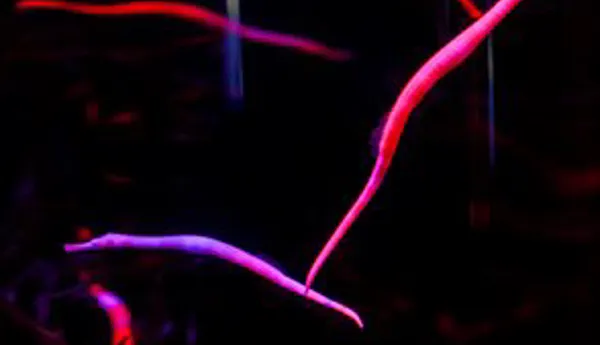- SEA LIFE, Shark Tunnel
Discover some of our species...
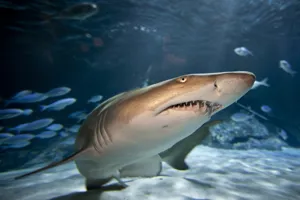
Sand Tiger Shark
The largest species of shark we have here at SEA LIFE Kelly Tarlton's is the Sand Tiger Shark - also know as the Grey Nurse Shark. These amazing animals can be found in the sub-tropical and temperate waters worldwide including Japan, North America, Australia, and South Africa.
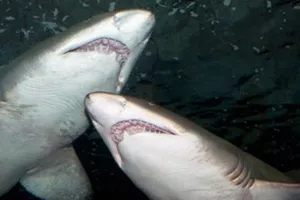
Highly endangered in the wild, this magnificent shark was once hunted ruthlessly under the false impression that it was a potential man-eater because of its large size and mouthful of protruding, snarly-looking teeth. On close examination, however, these teeth are perfectly adapted for holding onto slippery fish, its main prey.
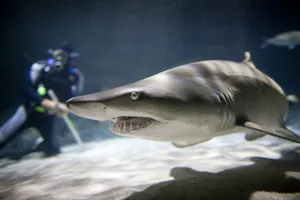
There are no confirmed human fatalities and this species is a top choice for aquariums worldwide due to their rather placid nature.
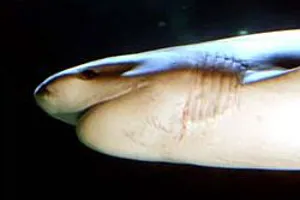
Broadnose Sevengill Shark
With a wiggly, lethargic swimming style and a small dorsal fin that looks like it's slipped down its back; the Sevengill gives the impression that it's clumsy and docile. Nothing could be further from the truth, however, as it can have explosive bursts of speed. Its toothless smile belies a top jaw full of razor-sharp pointed teeth, which are designed to pin its prey. The bottom jaw has rows of rectangular teeth, each with many serrations - a very efficient and effective sawing tool.
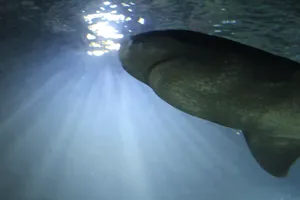
These slightly larger sharks, reaching 3 metres in length, feed on slow moving fish, rays, octopus, other sharks, seals and even dolphins!
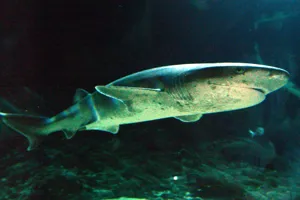
Broadnose Sevengill Sharks have large litter sizes – giving birth to up to 104 pups!
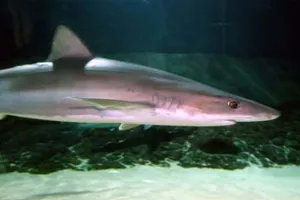
School Shark
Found throughout New Zealand, the school shark is the smallest species of shark in Shark Alley only growing up to 2 metres in length. As the name suggests they are found in schools, often in shallow water such as estuaries, harbours and surf beaches.
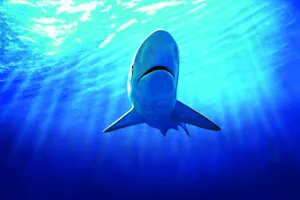
These lovely creatures can live up to 60 years old, reaching maturity anywhere between 12-17 years of age. Once mature they will reproduce every 3 years - giving birth to up to 54 pups each time. Sharks provide no parental care, once born the pups are on their own and must fend for themselves!
FIN-tastic Shark Facts
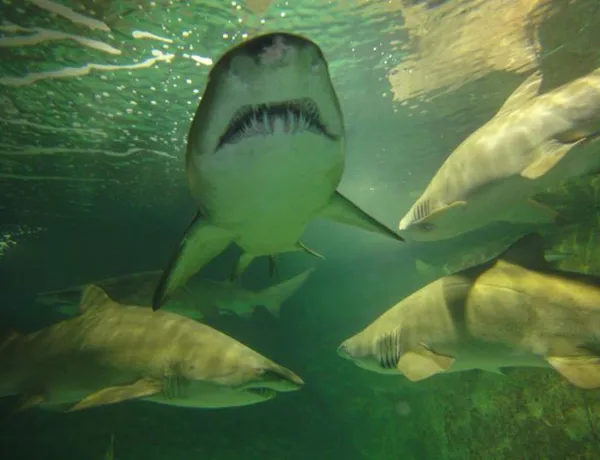
Sense of smell
Sharks are some of the most impressive hunters in existence. They can smell one drop of blood in a million litres of water, an incredible 2/3 of their brain is dedicated to this sense! They don’t just pick up a scent either, they can tell which nostril is picking it up and follow in the direction it is coming from.
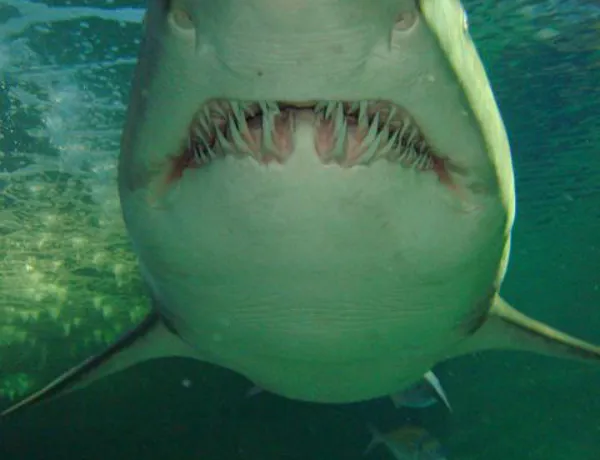
No dentist needed
Sharks can have up to 30,000 teeth in their lifetime. This is because unlike humans, they never stop producing new teeth. As they become old, blunt or broken the teeth fall out of the jaw and are immediately replaced by a tooth directly behind it.
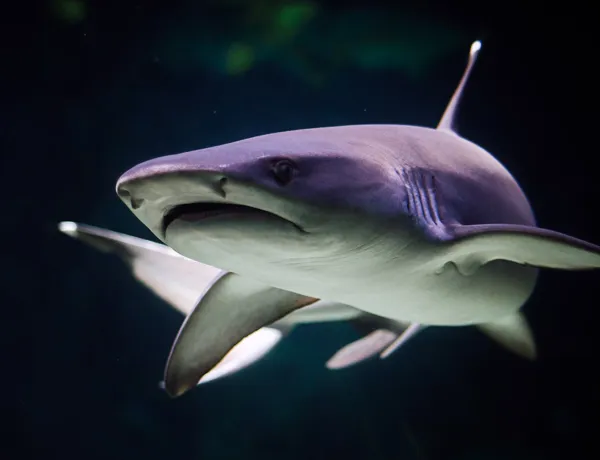
No bones
Did you know that sharks and rays do not have any bones? They have a skeleton but this is made entirely of cartilage – the same as your ears!
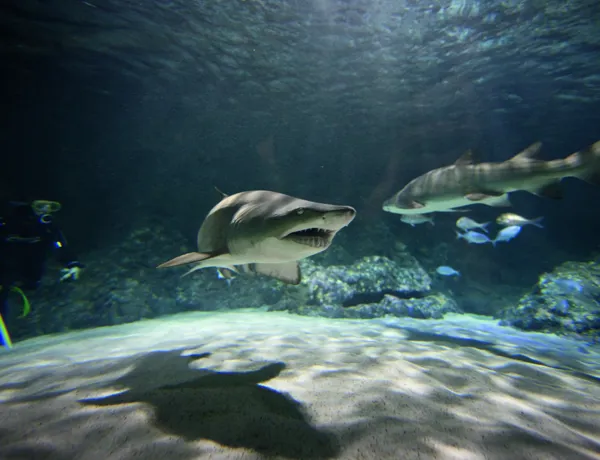
Under threat
Sharks are in danger of disappearing. Many sharks get caught in fishing gear or are hunted for their fins.
Discover more about...
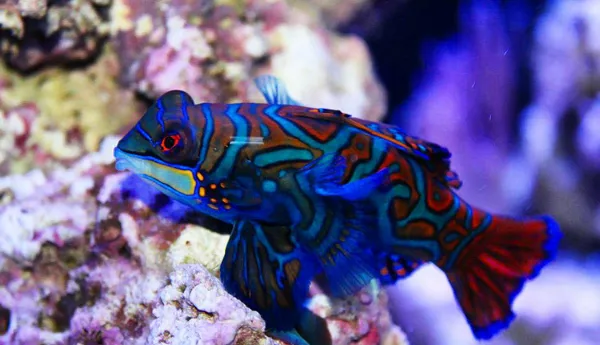
Colourful Fish Species
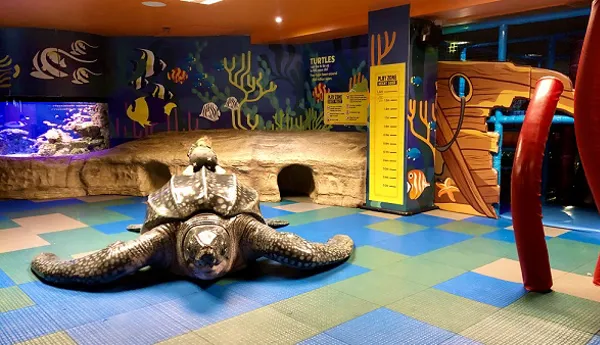
Shipwreck Shores
